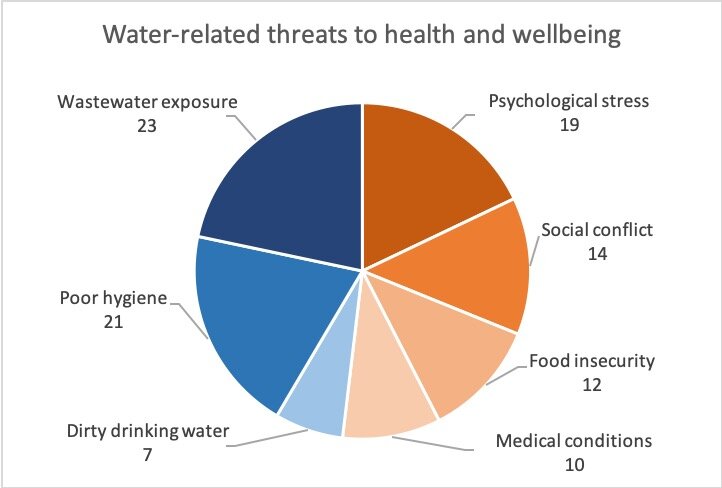Community Resilience in Cape Town (CoRect) Project
SOUTH AFRICA - Western Cape province
Many residents in Cape Town’s townships and informal settlements are frustrated with the limited access to water and sanitation services. To understand these experiences and gather information to present to decision-makers, the Western Cape Water Caucus (*WCWC) collaborated with researchers at University of Cape Town’s African Climate & Development Initiative [ACDI], assisted by Stellenbosch University’s Centre for Complex Systems in Transition (CST), and supported by EMG. *WCWC is part of the South African Water Caucus [SAWC] - a network of organisations active in the water sector.
The AIM OF THE COMMUNITY RESILIENCE in cape town (CORECT) PROJECT was to conduct a study that would inform WCWC’s work to improve living conditions in communities, and for its members to learn how to do citizen science.
The project team used a powerful research tool called SenseMaker, which is used to collect stories about people’s own experiences and problems. This process allows for making sense and understanding the collective experiences within the situational context, and using the knowledge to inform action, decision-making and monitoring.
CITIZEN SCIENCE - COLLECTING DATA
Working together, the group of WCWC members and the researchers came together in workshops to design the questionnaire for the purpose of understanding water-related issues in working class and poor, that is, low-income areas. WCWC members worked for 3 months to collect 311 interviews from several sites, including their own areas. Sites in the research included (as seen in the map left - ©ACDI) Du Noon, Joe Slovo , Delft, Green Park, Mitchells Plain, Khayelitsha, Makhaza, among others.
Transdisciplinary research - The CoReCT project is an example of THIs research process, in which both academic scholars, community members and other stakeholders are seen as legitimate holders and producers of knowledge. Combining different perspectives builds a better understanding, especially of complex problems.
For this purpose, WCWC nominated 12 members who worked with researchers to decide what questions the project should try to answer, and how to best find residents with stories to share. The WCWC citizen scientists then went to their own communities as story collectors, interviewing residents about water related issues they had faced and tried to address. By using this approach and their own familiarity with the areas, the story collectors were able to have open, honest conversations about peoples’ experiences, and to capture this in a way that could be used for scientific analysis.
Key emerging insights
The stories paint a picture of great frustration among the residents interviewed:
The majority of respondents’ (64%) water related problems are still ongoing.
Only 14% of respondents said that they usually get help when they try to address service delivery problems. (picture right © ACDI)
Those who are able to resolve a problem usually do so within the community: only 2% of stories describe successful problem-solving by the City of Cape Town municipality, even though that is who most people would like to hear their stories.
The most common problems are incorrect water bills, leaking pipes and malfunctioning water management devices (*WMDs). (picture right © ACDI).
That the WMDs are giving people problems is remarkable since the City of Cape Town municipality presented them as a tool to assist residents to manage their water use, not more problem with access and supply. *WMDs explained: Facts and Perspectives
Currently, many residents feel forced to bypass the law by disconnecting the devices or hiring private plumbers, since they do not know how to find help from the City of Cape Town. This results in further risk for residents of more problems further in the process of finding a solution - including fines for non-payment and disconnecton of the water supply.
FURTHER DOCUMENTATION:
Summary of project and findings (PDF):Community Resilience in Cape Town (CoReCT) A transdisciplinary research project on water-related issues in low-income area
Briefing note related to health (pdf): Water issues and health impacts in low income Cape Town communities A report from the CoReCT Project
This report analyses 77 of the 311 stories, focusing on those that describe a water issue that also poses a threat to health and well being. This includes both direct and indirect health hazards because of inadequate water services. (picture right © ACDI). The first three are direct threats that impact people more immediately - being exposed to contaminated wastewater, lacking clean water for hygiene and washing and having dirty drinking water. The following four are indirect threats that are less visible but still harmful - psychological stress from unresolved problems, social conflict and crime due to water services, food insecurity caused by lack of water, and complications from existing medical conditions.
Implications
The CoReCT project is of great value for efforts to address Cape Town’s water problems. It has assisted the WCWC to empower their collective voice as in representing local communities, and it has generated new information and understanding about resident’s everyday struggles in some of Cape Town’s most disadvantaged areas. This knowledge has facilitated discussions between WCWC, City of Cape Town representatives and other community organisations about how to best address the complex web of water-related issues. Last but not least, the project has also generated valuable academic research that will be published in scientific journals, where others can learn from the Cape Town case.
PROJECT TEAM:
This project was actioned by the WCWC and ACDI, with assistance and support from CST and EMG. It was funded by an AXA grant for research on water governance and resilience in cities and included: ACDI - Gina Ziervogel principal investigator and Johan Enqvist researcher, CST - Jan van Breda researcher and Luke Metelerkamp researcher Environmental Learning Research Centre, Rhodes University (previously CST). EMG’s Siyabonga Myeza, Thabo Lusithi and Apiwe Mdunyelwa were facilitators. WCWC members who participated: Ntombikayise Dondi, Zinzi Mgwigwi, Mpumelelo Mhlalisi, Gciniwe Nomela, Ann October, Welekazi Rangana and Maggie Yalabi, Austin Chiradza, Phumza Makeke, Ndileka Matume, Nomthandazo Nxoboyi, Lydia Petersen, Ayeza Mandla, Khayalethu Mateta, Henry Ngwenya, Pumla Nongawuza and Sumaya Witbooi
WATCH: WCWC do a study tour to monitor water access and quality in areas along the Kuils River





